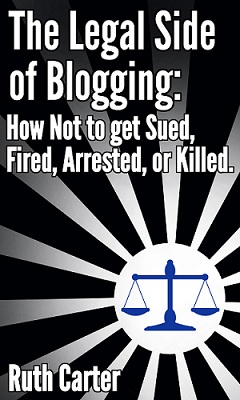As I was reading my Twitter feed the other day, I saw a post that said only 8% of people keep their New Year’s Resolutions. I don’t know if that statistic is accurate but I believe the number is low. If you want help keeping your New Year’s Resolution, make it legally binding with a contract.
Here’s what I suggest: get a friend who also has a New Year’s resolution and write a simple agreement with benefits for sticking to your resolution and penalties if you don’t. The penalty has to be painful enough that it motivates you to want to avoid it. And it helps if your friend is kind of a jerk who will hold you to it.
If I were writing this type of contract, it would be something like this:
Joe and Mike’s Resolution Agreement
Parties. The Parties to this Agreement are Joe Smith and Mike Jones.
Consideration. In consideration of mutual desires to improve our lives and ourselves, we have created this binding agreement to stay motivated to stick to our New Year’s Resolutions.
Joe’s Resolution. Joe currently weighs 250 pounds. Joe resolves to weigh 220 pounds or less on December 31, 2015. If Joe fails to do this, Joe will donate $1,000 to the charity of Mike’s choice on that day.
Mike’s Resolution. Mike currently smokes a pack of cigarettes per day. Mike resolves to be a non-smoker by December 31, 2015. If Mike fails to do this, Mike will donate $1,000 to the charity of Joe’s choice on that day.
The Celebration. If both of us are successful in keeping our resolutions, we will celebrate by getting opening day tickets for the Arizona Diamondbacks.
This is a real contract. This contract is governed by Arizona law. All disputes will be resolved in litigation in Maricopa County. The non-prevailing Party will be responsible for the prevailing Party’s attorneys’ fees. The Parties can modify this Agreement only in writing that’s signed by both Parties (but you better have a good reason to ask to change this Agreement).
Signed by:
Joe Smith Date Mike Jones Date
Witnessed by:
Friend Name #1 Date Friend Name #2 Date
I threw in a celebration clause so both sides would have a reason to encourage their friend to keep their resolution, plus it’s always good to celebrate successes. I added in witnesses so there would be more people holding them accountable. I’d tell both sides to put a copy of the contract on their refrigerator so they’d see it every day and remember the promises they made.
Contracts are fun, and they can be simple and personalized and still be valid. Good luck to everyone who making resolutions for the next year. I hope you’re successful. If you want to chat with me about this topic, feel free to connect with me on Twitter, Facebook, YouTube, LinkedIn, or you can email me.
Please visit my homepage for more information about Carter Law Firm.
Hat tip to my friend Jeff Moriarty for suggesting this as a topic.










